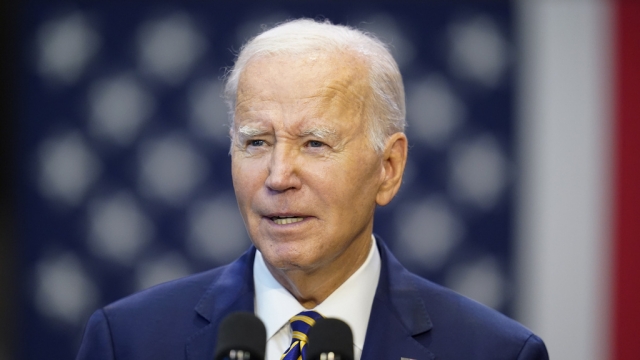House Speaker Kevin McCarthy has launched a formal impeachment inquiry against President Joe Biden.
"These are allegations of abuse of power, obstruction, and corruption, and they warrant further investigation by the House of Representatives," said McCarthy.
To impeach the president, the Republican-led House would have to approve of at least one impeachment charge against him by majority vote.
But it's the latest sign impeachment has become normalized in the modern era, and the move is decried by critics as a political weapon rather than charges for "high crimes and misdemeanors."
Impeachment votes against the President have reached the House only four times in history: against Andrew Johnson in 1868, Bill Clinton in 1998, and twice against Donald Trump in 2019 and 2021.
The framers included the articles of impeachment to have a peaceful means of removing corrupt officials— a final check on the executive and judiciary by legislative powers.
That includes all levels, from presidents to Supreme Court justices to attorney generals at the state level.
For example, in mid-September, Attorney General of Texas Ken Paxton was acquitted of impeachment charges under Texas statute for corruption and bribery.
More than two-thirds of House Republicans had voted to open the inquiry in May, but only two Senate Republicans voted to convict.
In a statement, Paxton called the process a "sham impeachment coordinated by the Biden Administration."
Impeachments have always been shaped by the political climate and are typically led by the opposing party.
But the process has become normalized in present times.
In 1970, then-Congressman Gerald Ford led a charge to impeach a Supreme Court justice for corruption.
During those proceedings, he boldly stated, "An impeachable offense is whatever a majority of the House of Representatives considers it to be at a given moment in history."
SEE MORE: Is impeachment the new normal?
In 1973, an inquiry was opened into impeaching Richard Nixon over his involvement in crimes during the Watergate scandal.
But before the House could formally vote on charges, Nixon resigned. His successor, Gerald Ford, famously pardoned him.
The second impeachment in presidential history wouldn't be voted on until 1998.
“And I had invited members of Congress to work with us to find a reasonable, bipartisan, and proportionate response. That approach was rejected today by Republicans in the House,” said former President Bill Clinton.
Clinton was impeached by the House. But the Senate was evenly split on bringing charges and did not meet the two-thirds needed to convict.
"The Senate judges that the respondent, William Clinton, president of the United States, is not guilty as charged by the second article of impeachment," said William Rehnquist, Chief Justice of the Supreme Court.
The impeachment itself was relatively unpopular; according to Pew Research, only about 30% of Americans supported it at the time.
Clinton's approval ratings remained steady and high, even climbing to 71% after the impeachment.
The lack of popularity for the process may have been a concern for Democrats hesitating to impeach President Trump in 2019, even though his approval ratings were much lower, hovering between 35% and 45%.
In 2018, then House Minority Leader Nancy Pelosi warned, "Impeachment is not something that is a partisan exercise. Unless you have bipartisanship, you're just acting politically."
The public was mixed on both impeachments for Trump, with only a little over half of Americans supporting them.
After the January 6th riots, Trump's approval rating dropped several points to his lowest at 34%.
Despite this, the public's approval for impeachment was still split and fell largely along party lines.
According to a recent Reuters/Ipsos poll, only about 41% of Americans support opening an impeachment inquiry into President Biden.
Whether the inquiry brings formal charges, however, still remains to be seen.
Trending stories at Scrippsnews.com



